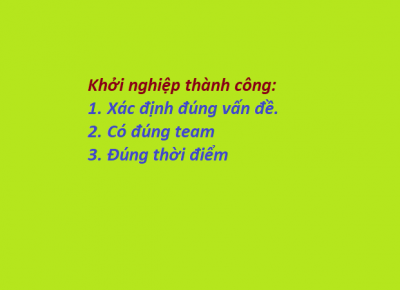MIT students turn their dorm room into Laboratories at night
Synopsis: Somebody asks to compare computer engineers among very good schools: MIT, Stanford and Tsinghua. This answer comes from nobody who claims to be at MIT and Tsinghua.
//////////////////////////////////////
I don't know much about Stanford as I've only visited for brief periods of time. I'm familiar with both MIT (I graduated from MIT) and Tsinghua (many friends from there, and been there many times) and in all honesty I think it's very hard to compare the two schools.
There are many fundamental differences in the school culture, many of which on the Tsinghua side don't stem from the school itself. Many people ask me why there is a lack of startups coming out of Tsinghua and so many from MIT, and of all the reasons, the one biggest reason I can identify is freedom.
In Tsinghua, they turn out the lights in the dorms at night. The network is pretty restricted. There are guards standing at the entrances to every building. In Tsinghua, the overall university culture is to study first. It's evident in Larry Zhang's answer that people in Asia think MIT students are successful because of studying hard. It couldn't be further from the truth.
Well, we do study hard. But that's not where strong computer engineers come from. At MIT, studying isn't why we are here. We're here to hack everything we can lay our eyes upon. In my undergraduate dormitory, we had welding equipment, wood cutting equipment, plenty of EE stations, spare concrete and wood lying around the hallways. We had easy access to supply rooms, machine shops, and all kinds of other facilities for non-academic personal use. We had a mailing list called Reuse where you could race around campus picking up all kinds of wacky stuff labs didn't want, from rack-mount servers to old nitrogen dewars. We have an open network without port restrictions, free static IP addresses, gigabit network drops to dorm rooms with unlimited symmetric bandwidth. And MIT encourages us to use these resources to the fullest extent possible and go build the future. I had 15 computers in my dorm room, until the advent of virtualisation. My neighbor across the hall picked up an industrial laser and built his own laser cutter. Another neighbor was busy with home-made RF electronics analysing security deficiencies of the local subway and the school ID system. Another neighbor built a second floor in his dorm room. Another neighbor managed to launch a camera into space for under $200 in parts just to prove it could be done. Another managed to build a 3D display, another was fooling with virtual reality headsets, another was busy hacking at the Linux kernel for fun.
When was all this stuff done? At the dead of the night. When Tsinghua pulls the power on its dormitories. In fact I'm not sure if I can think of a bigger showstopper to a country's technological future than forcefully pulling power and restricting internet bandwidth for the country's brightest, most motivated students. How are you supposed to build projects? How are you supposed to run your servers and process massive amounts of data? Over at MIT, we bootstrap companies out of dorm rooms. By day, our bedrooms are sleeping rooms, and by night, they become laboratories for all kinds of wacky projects.
Did we sacrifice study time to build stuff? Totally. A lot of us weren't at MIT to study anyway, we came here to build, and so build we did.
Did we break any rules? All the time! But fortunately, MIT doesn't watch us. No guards standing everywhere, no cameras, nothing telling us what we can and can't do unless we really do something physically unsafe. And so we hack the hell out of the campus too with high-tech (safe) pranks, not just our dorm rooms, and by doing them I learned about everything from Python to RF circuitry to power electronic design. In Tsinghua, they wouldn't even let me take pictures inside; there was a silly guard at the entrance to every building. Good luck hacking anything there.
Where are these people today? Half of them are CEOs of major computer engineering companies, software companies, or hacking away at the next big innovation from a large Silicon Valley company. Computer engineering skills comes first and foremost from practical experience, not from classes. And that's precisely what we were getting in our dorm rooms at obscene hours of the night.
Don't get me wrong, I've been there many times myself and Tsinghua students are extremely intelligent, bright, smart, and in fact no different from us in the passions they have for inventing the future. The real problem is not the students, it's the environment of the school, traditional Asian academic value system, and everything else that quickly stops them from putting their dreams and future first rather than studies. That's been my general observation over the years.
Anyway, I was going to check out this new class they're teaching this term, but think I'm just going to screw it and get back to hacking at my app instead ...









